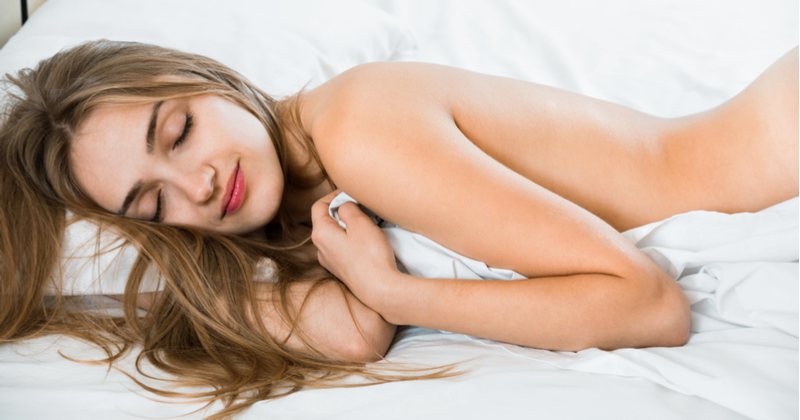Many people might think that sleeping naked sounds quite weird. However, researches and studies have proved that sleeping naked has its own benefits. Besides helping you sleep better, going to bed naked offers many other benefits.
Here are a few benefits of sleeping naked:
Improved genital health: Airing out your private areas while you sleep is especially important for both men and women. Wearing underwear traps in moisture, allowing bacteria to thrive and possibly cause a vaginal infection in women or jock strap itch for men.
Happier relationships: Speaking of genital health, sleeping naked is good for intimacy as well. It makes couples literally closer to each other, and the skin-to-skin contact releases oxytocin. Oxytocin itself has been shown to lower blood pressure and anxiety, while boosting your immune system.
Beauty sleep: It turns out, beauty sleep is a real thing, and sleeping naked may have something to do with it.
Reduced appetite: Sleeping naked can even help you lose weight. As we explained earlier, your cortisol levels operate inversely to your melatonin levels, rising in the morning as your melatonin trails off. However, if your sleep is interrupted, your cortisol levels can be higher than usual in the morning, so you’re likelier to overeat and indulge in overly sugary or fatty foods.
Better focus: A good night’s sleep is an uninterrupted one. If you wake up during the night from getting too hot, it can interrupt your deep and REM sleep. These restorative stages of sleep are essential for cognitive functioning, mood regulation, and memory processing during your waking hours.
What should you wear if you don’t want to sleep naked?
If you absolutely don’t want to sleep naked, don’t. It’s more important that you’re comfortable enough to sleep, than following an arbitrary rule (even if it does bring many benefits).
However, you should take care with what you do wear to bed. Choose pajamas made of fabrics that are breathable, lightweight, and natural. Some good moisture-wicking options include silk, flannel, and bamboo. Bamboo is also hypoallergenic and antibacterial, making it a nice option for allergy sufferers. Avoid wool and fleece, which prevent circulation, as well as cotton. Even though it’s lightweight, cotton is terrible at wicking away moisture that occurs during night sweats.
Make sure your clothes are loose and thin, but not too baggy so as to tangle you up during the night. Oh, and make sure you wear socks.
PNN/Agencies
